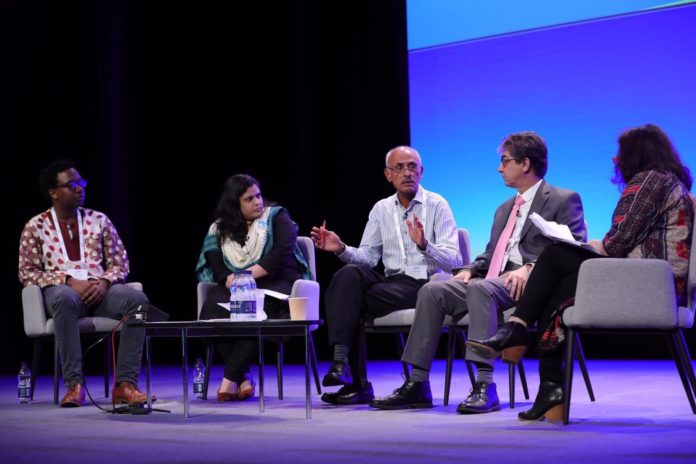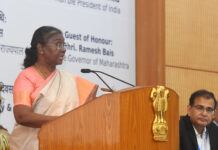
At the 5th conference on health systems research in Liverpool the need to do away with gender based discrimination was discussed
As India comes to terms with its own MeToo moment with allegations tumbling out against journalists and politicians, the movement against sexual harassment at the workplace has now found space in the global goals of health for all too.
At the Fifth Global Symposium for Health Systems Research (HSR2018) in Liverpool last week, delegates made a strong plea for action to address the ‘power and privilege’ that continues to undermine health systems in ensuring health and wellbeing of citizens and communities.
Outgoing chair of Health Systems Global, Kabir Sheikh said: “The #MeToo movement has shown us that even the most privileged among women have not been spared from cultures of sexual harassment and exploitation. This is the tip of the iceberg, and we need to go deeper to understand and tackle the true extent of gender-based discrimination and violence, especially on the wellbeing of poor women with less recourse to systems of accountability”.
“The #MeToo movement has shown us that even the most privileged among women have not been spared from cultures of sexual harassment and exploitation”
Sustainable Development Goals are the blueprint to achieve a better and more sustainable future for all. They address global challenges, including those related to poverty, inequality, climate, environmental degradation, prosperity, and peace and justice. The Goals interconnect and in order to leave no one behind, the target is to achieve them by 2030. SDG 5 is about gender equality and calling out sexist behaviour or comments – the core of the #MeToo movement.
Asha George, incoming Chair of Health Systems Global, said: “Emerging platforms for social voice and leverage, including social media, have demonstrated how those in positions of power can be held to account for their actions. Such platforms merit consideration and scrutiny as to how they can contribute to universal health coverage and the sustainable development goals (SDGs)”.
The theme of ‘Advancing health systems for all in a SDG era’ was addressed throughout all the sessions at the Symposium. Dr Soumya Swaminathan, Deputy Director General of the World Health Organization, said: “in health systems we must keep asking the question, how is what we are going to do going to benefit the people most in need and applying the equity lens is the only way we can make progress towards the SDGs”.
The event commemorated anniversaries of two significant global health events – the Alma Ata declaration for primary health care and the birth of the UK National Health Service (NHS). Ahead of the fortieth anniversary event for the Alma Ata declaration, the Global Conference on Primary Health Care, the Symposium Liverpool Statement called on leaders, donors and the research community to broaden and expand foreign and domestic investment in the field of health policy and systems research (HPSR) and set agendas that are open to innovation and includes marginalised voices.
Health Systems Global organizes a symposium every two years to bring together its members with the broad range of players involved in health systems and policy research. The focus of the Fifth Global Symposium on Health Systems Research (HSR2018) in Liverpool between 8-12 October was on advancing health systems for all in the sustainable development goals (SDGs) era. The next Symposium will be hosted in Dubai on 8-12 November 2020.
Alistair Burt, UK MP and minister for international development said “one of the National Health Service’s fundamental values is equitable access, care that is free at the point of use so that no one is left behind. Leave no one behind is a core theme of the Symposium and we all need to learn from each other how we can uphold this principle”.
Photo Credit: Health Systems Global













